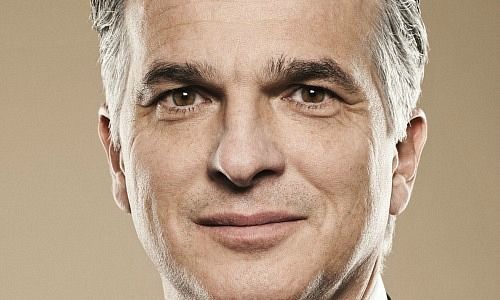UBS Chief Executive Sergio Ermotti challenged staff to find financial solutions for the most pressing problems facing society today such as diseases, education, and climate change. The hidden bonus is to UBS's private bank, where wealthy clients are increasingly looking for a return on their charitable donations.
Switzerland's largest bank has long offered philanthropy advice and impact investing. Earlier this year, it pitted its employees against one another in a competition to find the best financial ideas for global problems.
Chief Executive Sergio Ermotti awarded the top prize to a proposal for inexpensive, automated retirement savings for low-to-middle-income groups. The team will work with the Center for Global Development for a week in Washington to try and put the idea, which builds on financial technology, into practice.
Aid vs Profit
The plan is part of a push by UBS and other banks to broaden their investment offerings. It also comes as development and aid swings from a purely donation model to an incentive-based one, where results are monitored and measured. Big-pocketed donors no longer write a check and walk away; they increasingly want a voice in how their money is spent.
That's where private sector firms like UBS come in: Making a profit while making a difference is no longer frowned upon, according to Caroline Anstey, head of UBS and Society. She is convinced that finance is poised to play a huge role in solving «big-ticket» problems like health, education and infrastructure.
Incentives-Based
Very basically, the development community identifies the problems and outlines the initiatives to address them, while the private sector helps with funding. The two are then linked up through incentives – something the finance industry, where year-end bonuses often rely on a cut of business brought in by a banker, knows better than any other.
«Now we can incentivize payment against results: bondholders get paid if the girls are educated, if their literacy and math levels go up. There are all sorts of ways that you can pay for success programs,» said Anstey, a long-time World Bank executive.
Aid Reforms
The push follows reforms at United Nations, where Ban Ki-moon has forced through changes aimed at making more of private sector money, and development organizations, which are moving away from simply sending funds to those in need and hoping for the best.
This represents a major opportunity for UBS, which offers advice on philanthropy to its wealthiest clients. For a younger generation of well-heeled clients – who buy organic produce or fair trade items – the lines between philanthropy and social-minded investing are increasingly blurred, Anstey says.
«Why Wouldn't You?»
«I think you have big potential amongst big private investors to do good and do well and the exciting thing for me if you can do that with no tradeoff,« Anstey says. «If you can really say you can have a return on par of a traditional investment and you can have a social and environmental return and if you can have both, why wouldn't you?»
The savings plan which won the UBS competition allows those with lower income to gradually build a retirement scheme by allotting a small percentage of from every electronic payment made to a low-cost, diversified strategy investment fund. The idea behind the simple, convenient method is to link retirement savings with consumption.


































